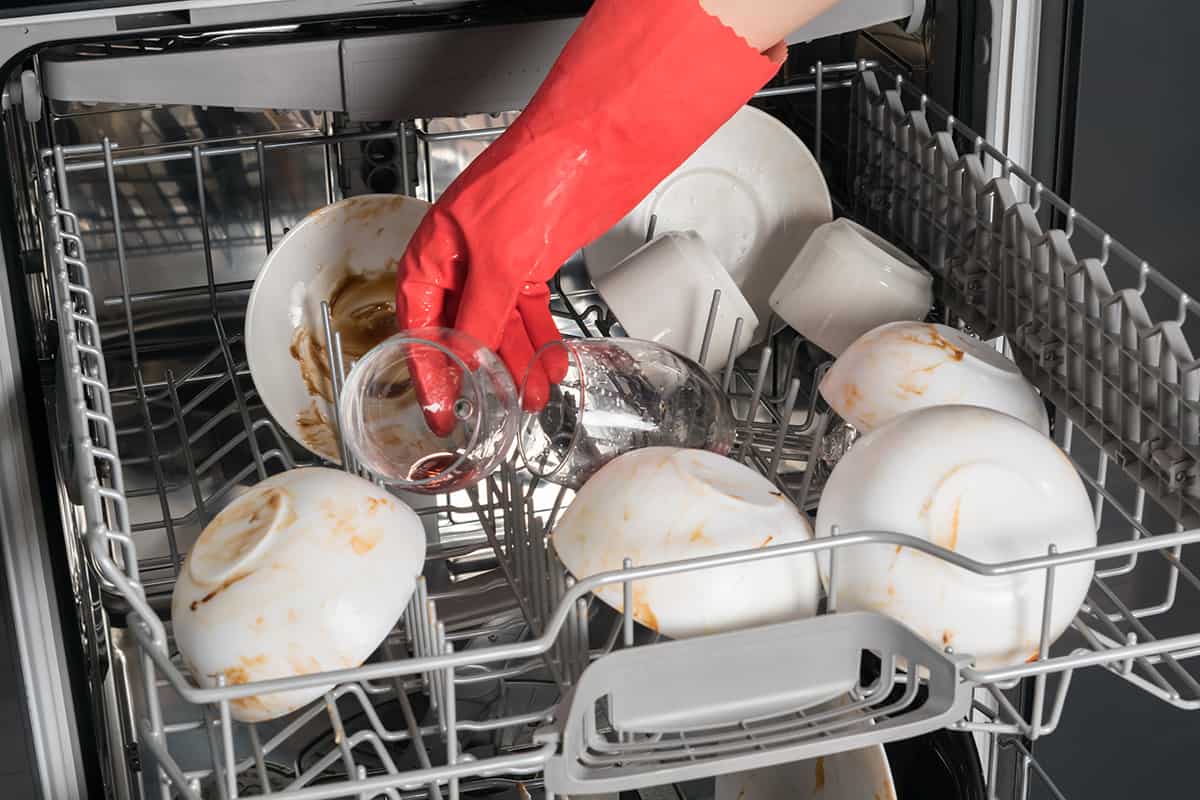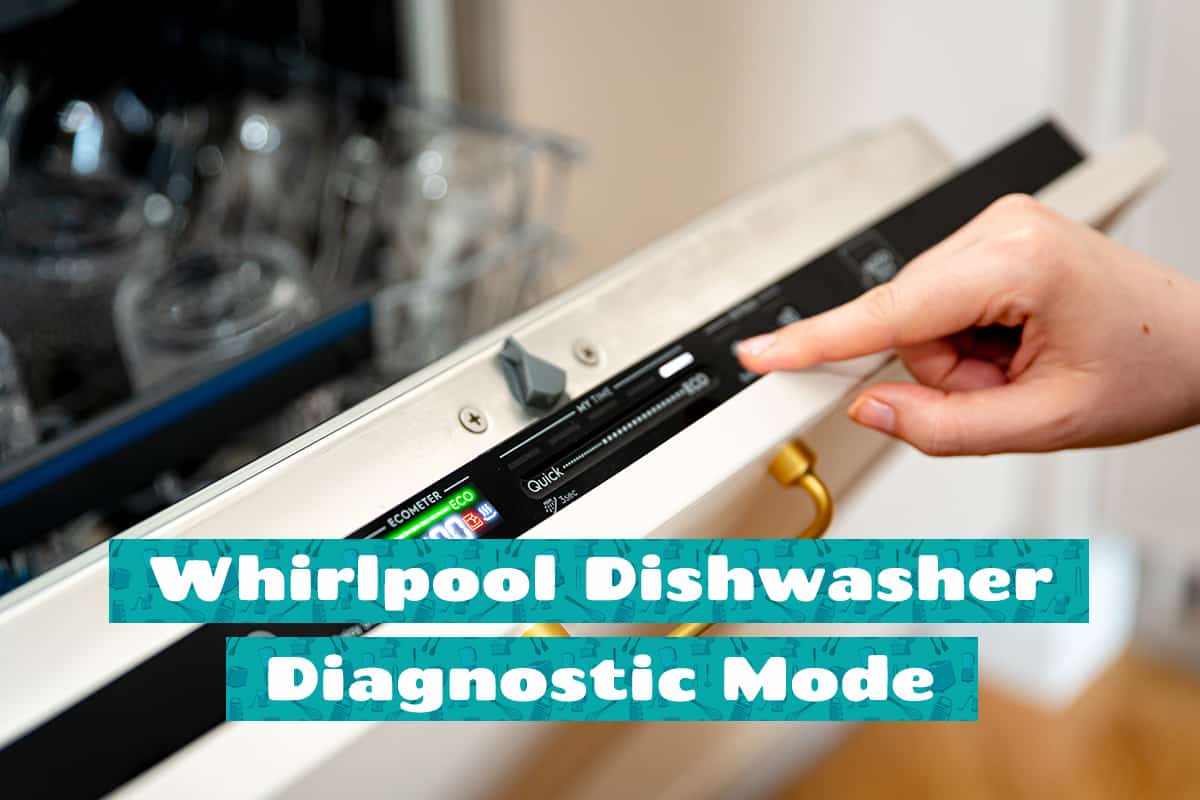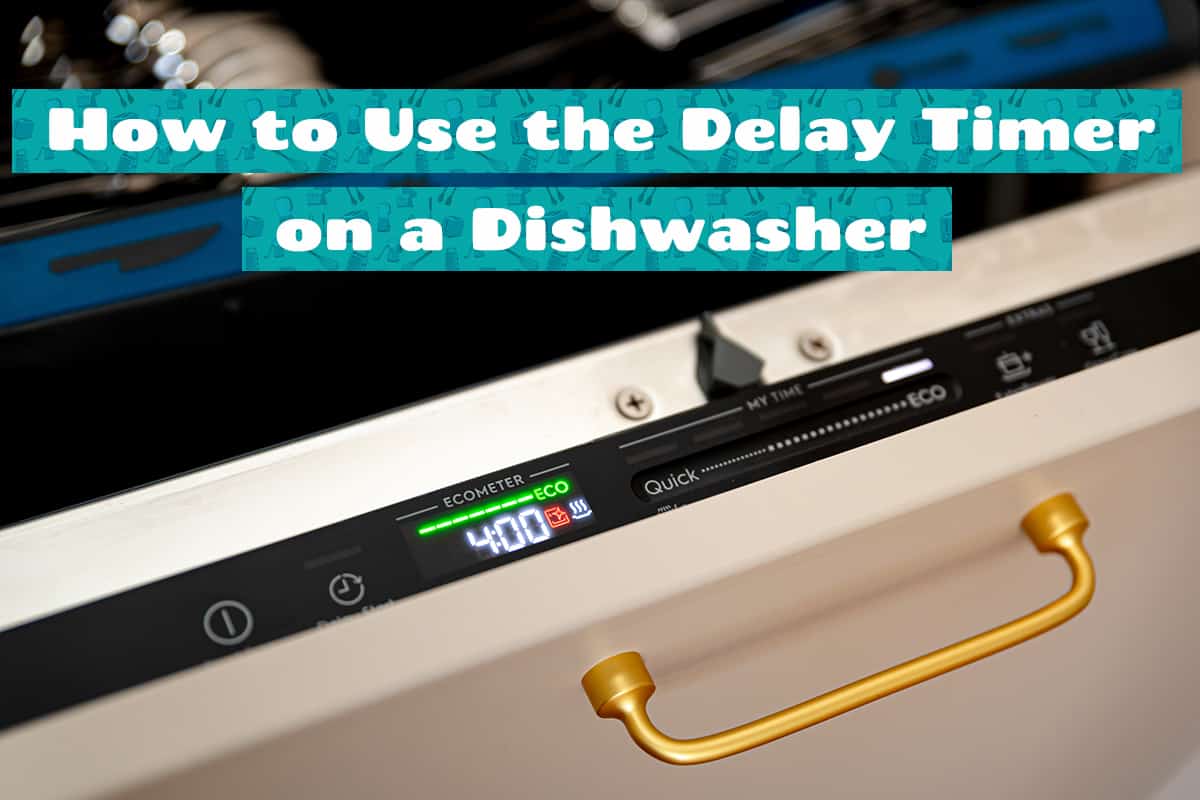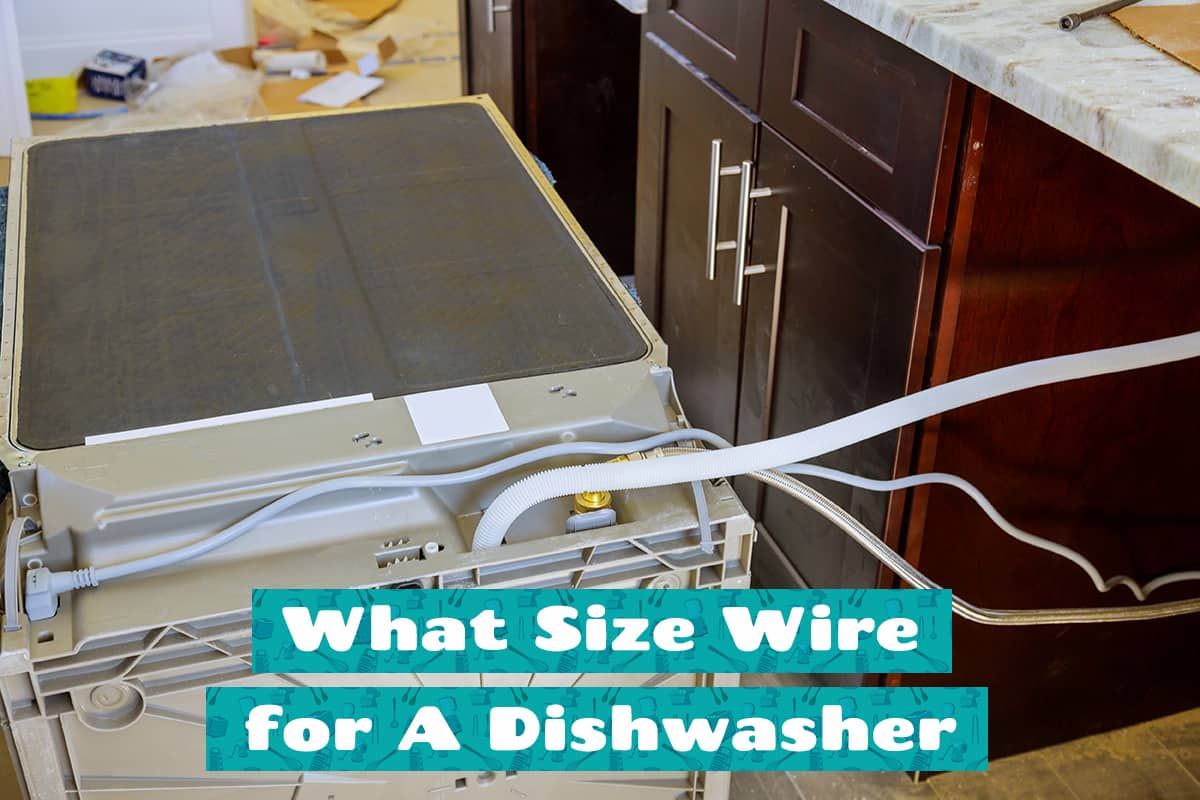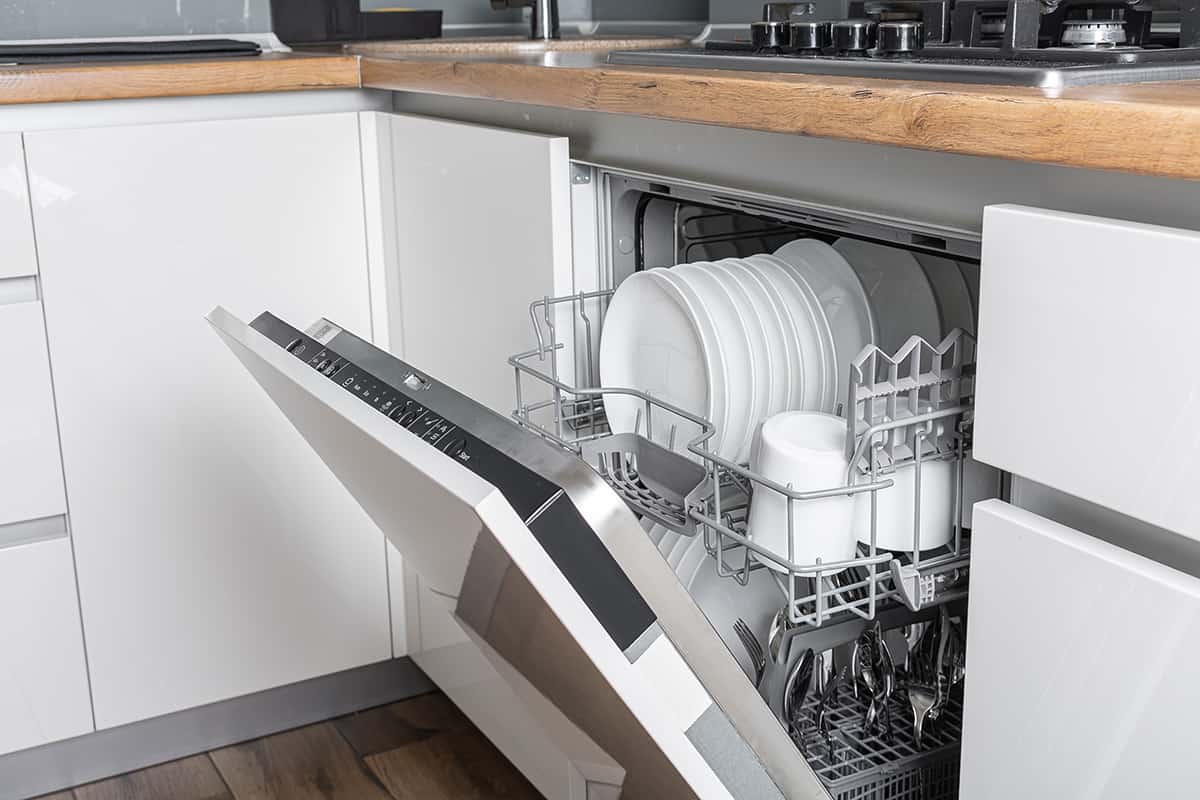For many of us, life without a dishwasher is almost unimaginable. These handy appliances take over one of the most time-consuming chores. That said, there is one question that has baffled many of us for years: should we rinse our dishes before placing them in the dishwasher? It might seem like a simple question, but there’s been some debate over the years.
In short, it’s not necessary to rinse dishes before putting them in the dishwasher, as modern dishwashers and detergents are designed to handle food particles. However, scraping off excess food is recommended to prevent clogs and ensure optimal cleaning performance.
In this article, we’ll delve deeper into the reasons behind both sides of the argument, as well as the features of modern dishwashers that make rinsing unnecessary.
How Modern Dishwashers Work
In a nutshell, here’s how dishwashers work:
- Modern dishwashers use water, detergent, and mechanical action to clean dishes.
- Water is heated and mixed with detergent.
- The mixture is sprayed onto dishes through rotating spray arms.
- The force of the water, enzymes, and surfactants in the detergent break down and remove food particles.
- Soil sensors detect the level of dirtiness and adjust water usage and cycle length accordingly.
- The dishwasher drains the dirty water after the cleaning cycle.
- The dishes are rinsed with clean, hot water.
- The drying cycle removes excess moisture, leaving dishes clean and dry.
The Pre-Rinsing Debate
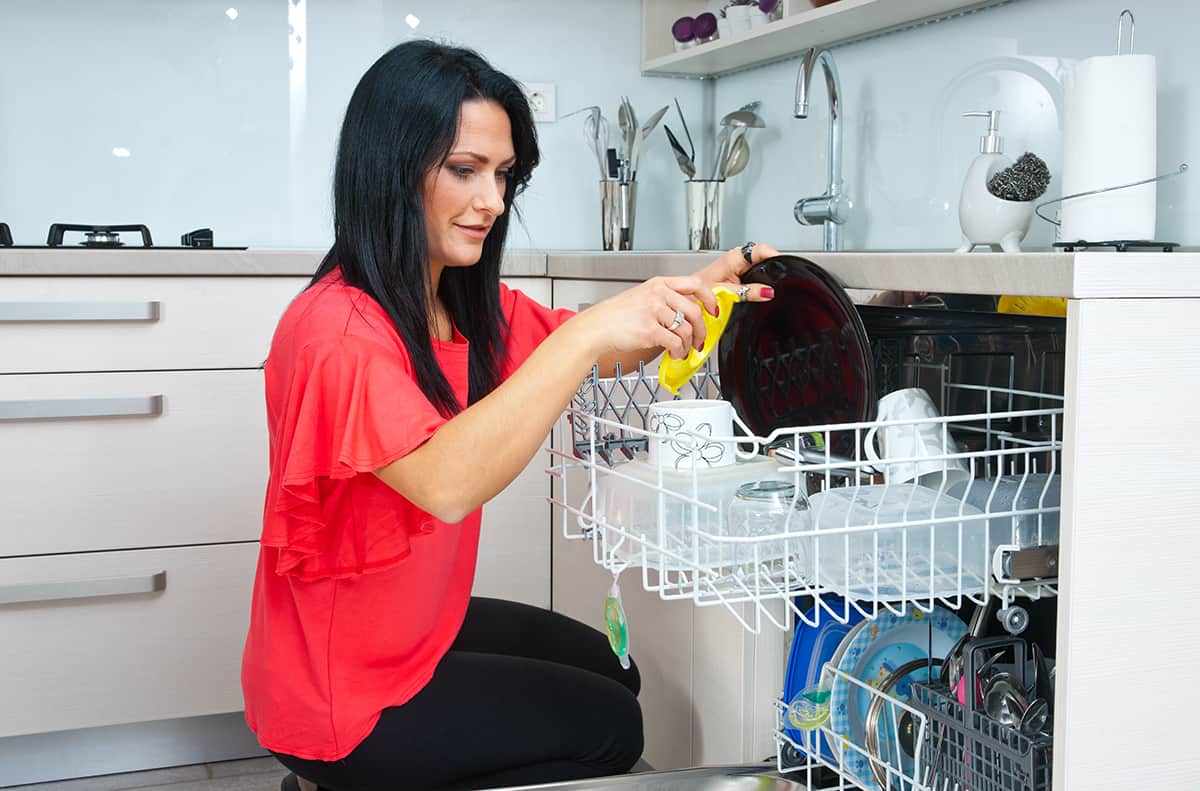
As mentioned earlier, the issue of whether you should rinse dishes before putting them in a dishwasher is a hot debate topic. Let’s see what both sides have to say about this matter.
The Case for Rinsing Dishes
- Pre-rinsing dishes may prevent the dishwasher’s filter from getting clogged. When large food particles are left on dishes, they can get caught and clogged in the dishwasher filter, which may cause the dishwasher to work less efficiently or even break down.
- Another reason is to reduce the risk of “redeposit.” This happens when food particles are washed off one dish but then stick to another during the cleaning cycle. Rinsing dishes can help remove these particles so they don’t end up on other dishes.
- Rinsing dishes can also help get rid of strong odors. Sometimes, when dishes with smelly food like garlic or fish are left in the dishwasher for a while, the odor can spread to other dishes. Rinsing can help prevent this from happening.
- Rinsing dishes might ensure that your dishwasher cleans everything properly. If there is a lot of food stuck to the dishes, the dishwasher may not be able to remove it all.
The Case Against Rinsing Dishes
- You can save water and energy. Rinsing dishes by hand can use a lot of water, which is not good for the environment or your water bill. Modern dishwashers are designed to be efficient, using less water and energy than hand rinsing. Not rinsing dishes can have a positive impact on the environment. Using less water and energy helps reduce your carbon footprint and contributes to a greener planet.
- Another reason is that dishwasher detergents are made to work with dirty dishes. The enzymes and other cleaning agents in the detergent need food particles to work effectively. If the dishes are already rinsed, the detergent might not clean as well.
- Some people also believe that pre-rinsing is just a myth. They think that dishwasher manufacturers created the idea to make their products seem more effective. In reality, modern dishwashers are designed to handle food particles without needing pre-rinsing.
Rinsing vs. Scraping: Striking a Balance
Finding the right balance between rinsing and scraping can help you make the best use of your dishwasher while also being environmentally friendly.
When to Rinse and When to Scrape
There are times when rinsing makes sense, like when you have dishes with sticky or hard-to-remove food. In these cases, a quick rinse can help the dishwasher clean them more effectively. On the other hand, for dishes with just a few crumbs or small bits of food, scraping them off is enough.
The Role of Personal Preference
Your personal preferences also play a role in deciding whether to rinse or scrape. Some people like the peace of mind that comes with rinsing dishes knowing they will come out clean. Others prefer the convenience and environmental benefits of skipping the rinsing step and trusting their dishwasher to do the job.
Dishwasher Features that Make Rinsing Unnecessary

Modern dishwashers come with many features that make rinsing dishes before loading them unnecessarily. These features help your dishwasher clean your dishes efficiently, even when there are food particles left on them.
1. Advanced soil sensors
Soil sensors can detect how dirty your dishes are and adjust the dishwasher’s settings accordingly. This means the dishwasher can use more water, heat, or time if needed to clean very dirty dishes, making it unnecessary to rinse them beforehand.
In fact, pre-rinsing your dishes can “trick” your dishwasher into thinking that your dishes are cleaner than they are. If your dishes appear cleaner during the pre-wash phase, your dishwasher may not dispense enough detergent or heat up the water to adequately sanitizing levels.
2. Powerful Spray Arms and Jets
Modern dishwashers have powerful spray arms and jets that can reach all areas of your dishes. The force of the water spray helps remove food particles, even when they’re stuck on the dishes. This strong water pressure can clean your dishes without the need for rinsing.
3. High-Temperature Wash Options
High-temperature wash options heat the water to a higher temperature, which can help break down and remove stuck-on food particles. This feature is particularly helpful for cleaning dishes with dried or baked-on food, where rinsing might not be as effective.
4. Hard Food Disposers and Filters
Some dishwashers have built-in hard food disposers or filters that can grind up and remove larger food particles. These disposers prevent the particles from clogging the dishwasher’s spray arms or getting redeposited onto your dishes. This feature makes it unnecessary to rinse your dishes, as the dishwasher can handle the food particles on its own.
